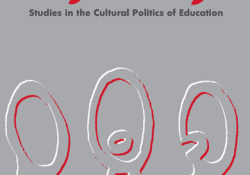tandfonline.com – Socioscientific issues via controversy mapping: bringing actor-network theory into the science classroom with digital technology
tandfonline.com har udgivet en rapport under søgningen “Teacher Education Mathematics”: ABSTRACT ABSTRACT What are the current challenges and opportunities for bringing actor-network theory (ANT) into issues-based science education? This article discusses experiences gained from introducing an educational version of ANT deploying digital technology into an upper secondary school science class. This teaching innovation, called controversy mapping, has been pioneered in different contexts of higher education before being adapted to school education. Experimenting with controversy mapping in a Swedish science class raised both conceptual and practical issues. These centre on: (1) how ANT-inspired controversy mapping redesigns the citizenship training enacted by institutionalized approaches to issues-based education as socioscientific issues (SSI); (2) how controversy mapping reconfigures the interdisciplinarity of issues-based science education; and (3) how controversy mapping displaces scientific literacy and knowledge… Continue Reading

